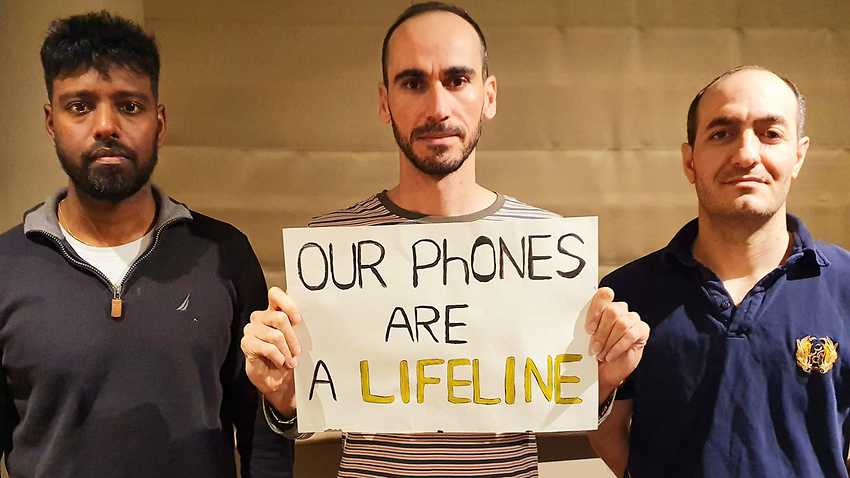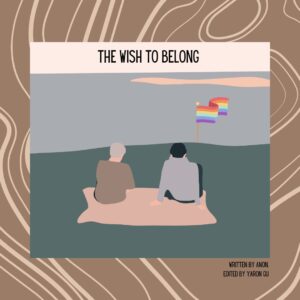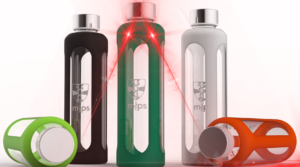
By Eleanor Hall
“I have always said that I believe in words and literature. I believe that literature has the potential to make change and challenge structures of power. Literature has the power to give us freedom.”
These were the words of Behrouz Boochachi, a refugee who spent six years in offshore processing, as he accepted the Victorian premier’s literary prize via video in 2019 for a book he wrote entirely over WhatsApp message. A book that told a story that has gone largely untold, a book that wouldn’t exist without a phone.
Behrouz also filmed a documentary of life inside on his mobile, revealing the realities of detention and the suffering of those around him. Like many other refugees, he used his phone to communicate with media and more importantly friends and family outside of detention. For those in immigration detention, mobiles and other internet-capable devices maintain the last unmediated link to the outside world.
Now the government wants to ban them.
A new Bill, currently in our senate, would seek to prohibit mobile phones and other internet-capable devices and introduce measures such as strip searches. The prohibition and strip and seizure policy can be enacted regardless of the detainees’ criminal background or risk profile and does not require evidence of wrongdoing.
Though the use of the word ‘detention’ inspires thoughts of punishment and criminality, it’s important to note that ‘Immigration Detention’ is a purely administrative process and under Australian law cannot be used as punishment and therefore cannot unduly restrict the rights and freedoms of detainees.
Broadly, it processes three main categories of people, which of May 2020 composed of:
1. 489 asylum seekers who arrived by boat (refugees being processed)
2. 261 categorised as other (unauthorised air travel, overstayed visa etc)
3. 648 people subject to visa cancellations under section 501 (character violations)
Whilst we mainly hear about asylum seekers, who are refugees undergoing processing for settlement in Australia, detention facilities also house individuals with overstayed or cancelled visas. The visa violations group consists of a wide-ranging group of people and risk profiles, including some section 501 individuals who have criminal records. Despite this, it’s important to note that they have served time for any criminal offences and are only in immigration detention for temporary processing.
The government’s reasoning for the prohibition is that these devices are being used for criminal activities, a claim related to the marginal increase in 501 detainees. Evidence to support this claim is dubious, as is the need for a generalised prohibition of items that assumes homogenous risk among detainees. Even more troubling, is that the list of potential prohibited items is non-exhaustive and only needs to fulfill the vague criteria of undermining the “order of the facility”. This means items don’t even need to be related to committing a crime.
It’s this ambiguity that allows for abuse of power, particularly in silencing and furthering isolating communities which have a history of poor journalistic access and oversight. If the Bill was simply about high risk 501 visa individuals with significant criminal records, it should be written accordingly. But even then, we are talking about limiting the rights and freedoms of individuals – punishing them, without evidence of wrongdoing. Additionally, it’s important to note that the Bill allows for no mechanism for a detainee to challenge the prohibition of an item creating an environment of little to no accountability.
This is particularly worrying when you consider the fact that legal rights are also restricted under the new system. Detainees will be required to pre-schedule time to speak with legal counsel as the landlines that will replace detainees’ mobiles are largely located in common areas instead of private rooms. There is no indication on how long the wait to access a private call might be for detainees, directly impacting the timely provision of legal advice.
If you’re still thinking maybe, just maybe it’s all worth prohibiting items such as mobile phones to achieve safety for Australians and those held in detention… then I ask you this: If what we care about is safety, wouldn’t the simplest answer be to screen and separate high-risk 501 individuals and have them in more secure locations, thereby protecting not only staff but other detainees such as vulnerable asylum seekers?
Instead, the Bill’s entire premise centres around the representation of all detainees, many of which are vulnerable refugees undergoing processing, as criminals in an attempt to justify circumventing standard criminal law processing.
It assumes guilt.
It prioritises questionable security improvements and convenience over privacy and freedom and most importantly – mental health. Humanity.
That should make you uneasy.
People in detention already face immense mental health challenges, and 2020 has seen the highest ever rates of self-harm with 423 incidents. This is a result of a multitude of factors, but primarily reflect the compound effects of isolation, separation from family, and a loss of hope with no detainees being released this year due to the Australian Border Force’s COVID policy. Video calls that maintained the semblance of contact would disappear without mobiles, the Royal College of Australian General Practitioners (RACGP) commenting that their removal will “undoubtedly worsen their mental health and likely lead to further adverse health outcomes.”
Many of us have had a taste of lockdown this year, now imagine that lockdown with no end, no family members, no mobile phone, and no internet. Then think about it a moment longer. Over 25% of all individuals currently held in immigration detention have been there for more than seven hundred and thirty days. That’s over two years. Enough time for a child to be born, walk, talk, and play. Enough time to miss your child walk, talk, and play. Too much time to not see your family, to not learn and have access to the internet and privacy. Too much time to be voiceless.
I have no doubt that the government’s efforts to strip refugees in detention centres of mobile phones and internet capable devices is in part, because they know how important it is to have a voice. They know the power of a story and hope, and they know that a key part in disabling one’s voice is taking away the avenues to express it.
Make no mistake, banning mobile phones is about preservation of reputation and image.
It’s about control.
The sad thing is, this isn’t new. The government backed down in 2016 from the gag laws it imposed on medical professionals treating patients in offshore detention facilities, but only because we got outraged. Only because we spoke out and told the government that it was unacceptable. These gag laws still exist for other professionals working at detention centres. Policy won’t change unless we make it.
So, what can you actually do?
It looks as if the Bill will be a close vote, with Senator Jackie Lambie being a key swing voter. Senator Lambie has opened a poll on her website for members of the public to advise her on how she should vote and I implore you to visit it, vote, and voice your opinion on the Bill. Furthermore, you can sign up to the Asylum Seeker Resource Centre’s petition to stop the Bill.
At the end of the day, regardless of what you believe about asylum seekers or anyone else undergoing administrative immigration processing, you should believe in the rule of law. You should believe in not punishing people and restricting their freedoms without evidence of criminal activity or oversight and with no mechanism of appeal.
This Bill should make you very uncomfortable.
Click here to vote in Lambie’s poll.
Click here to sign the petition.












































































































